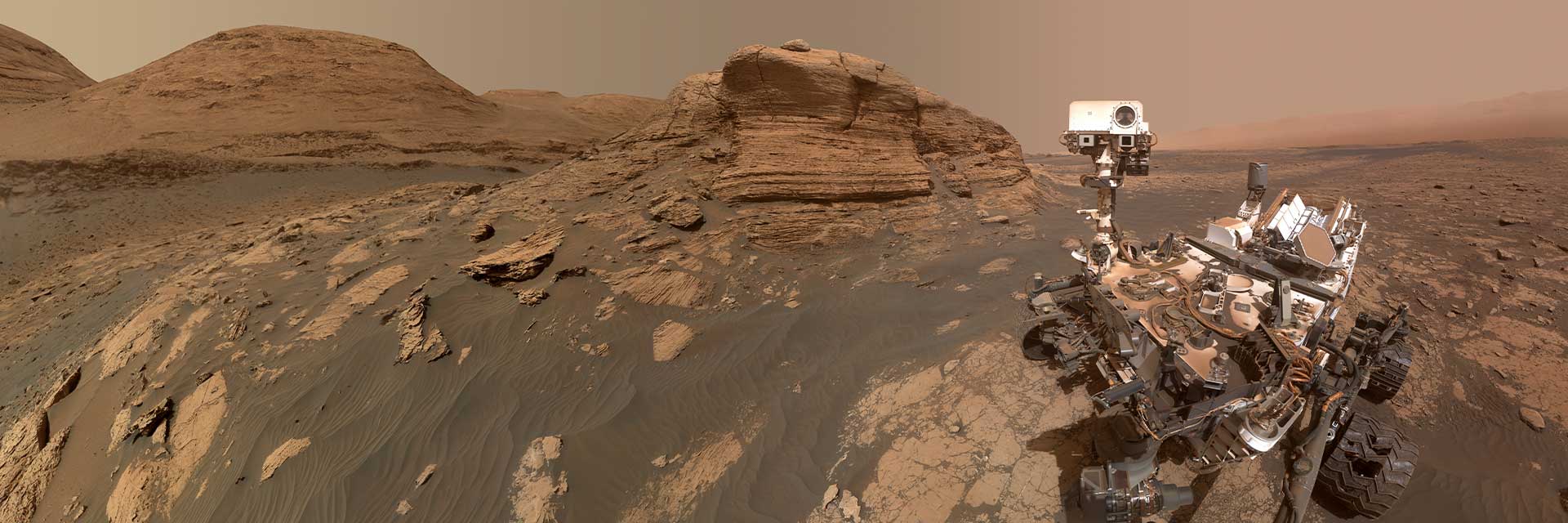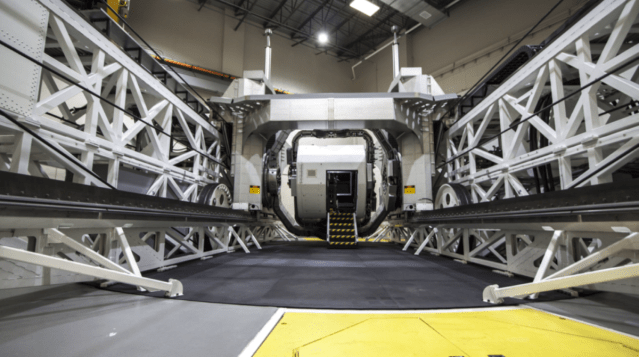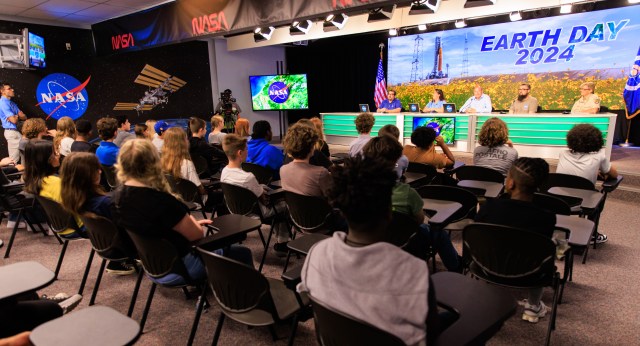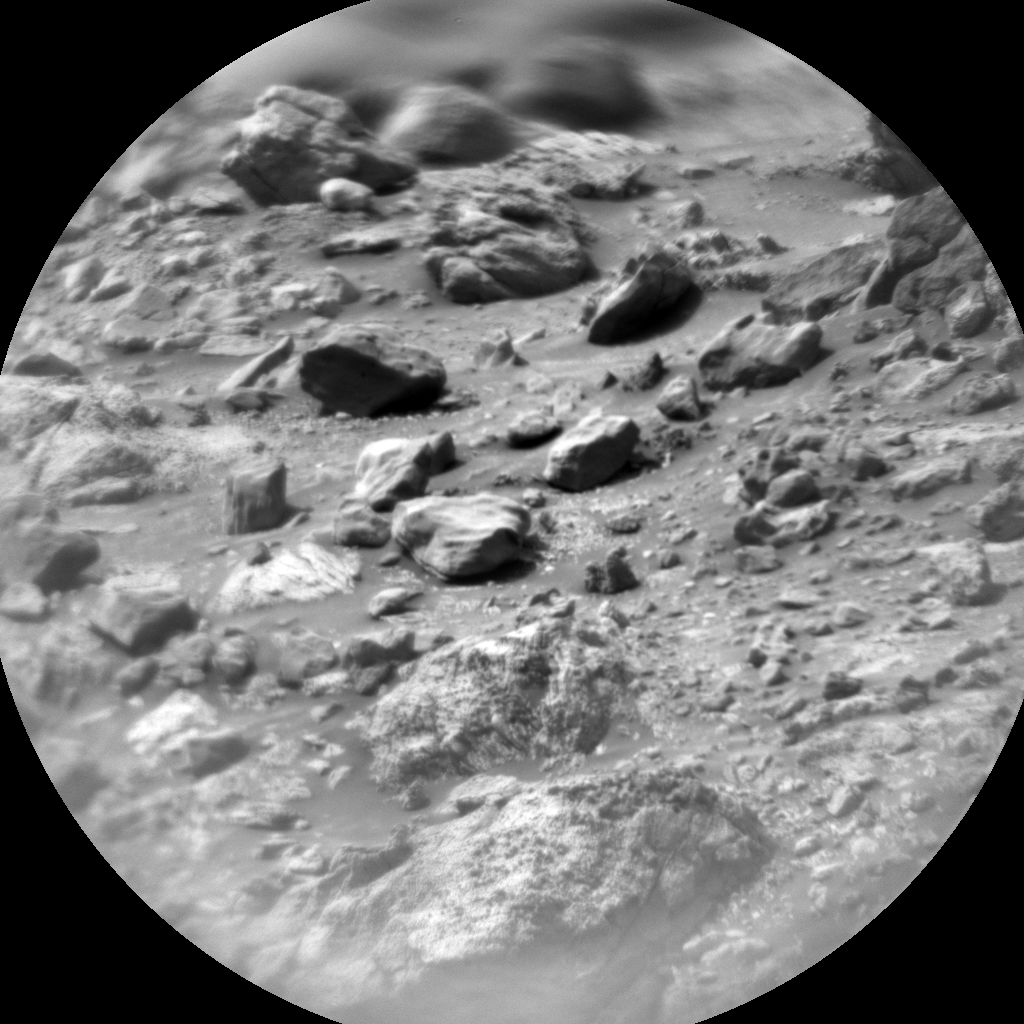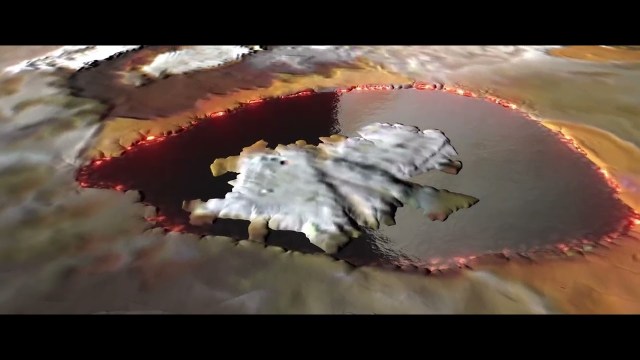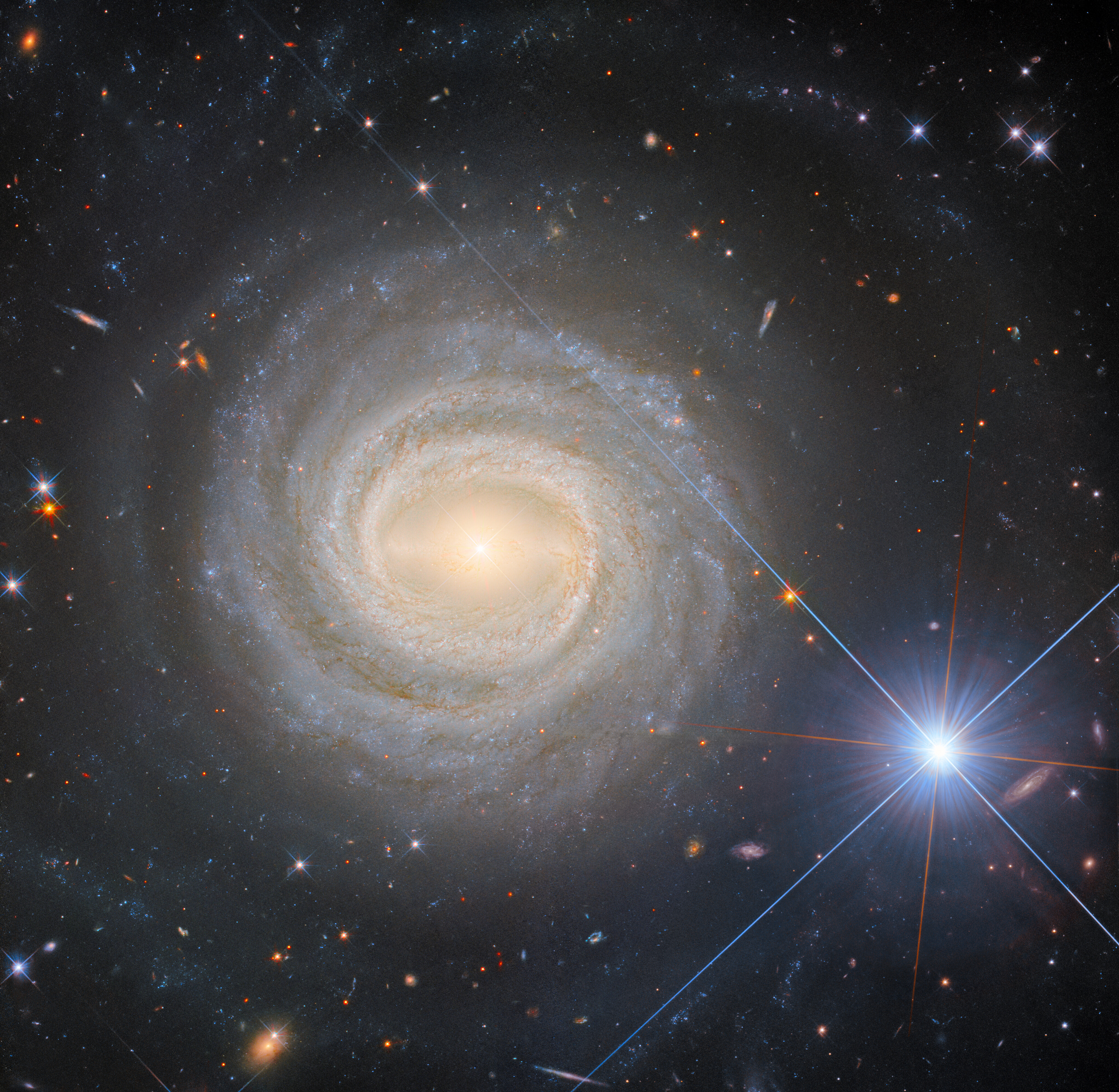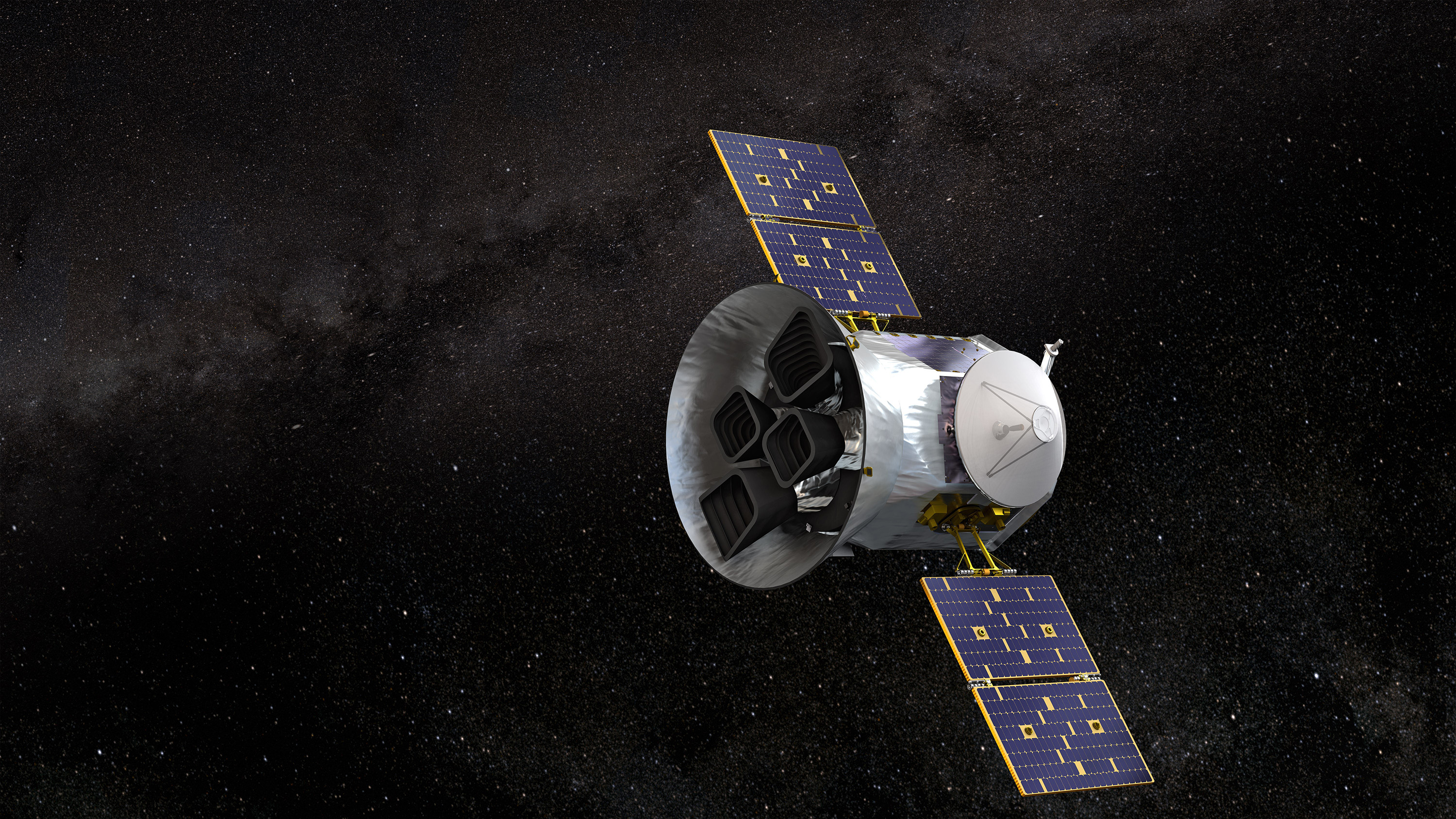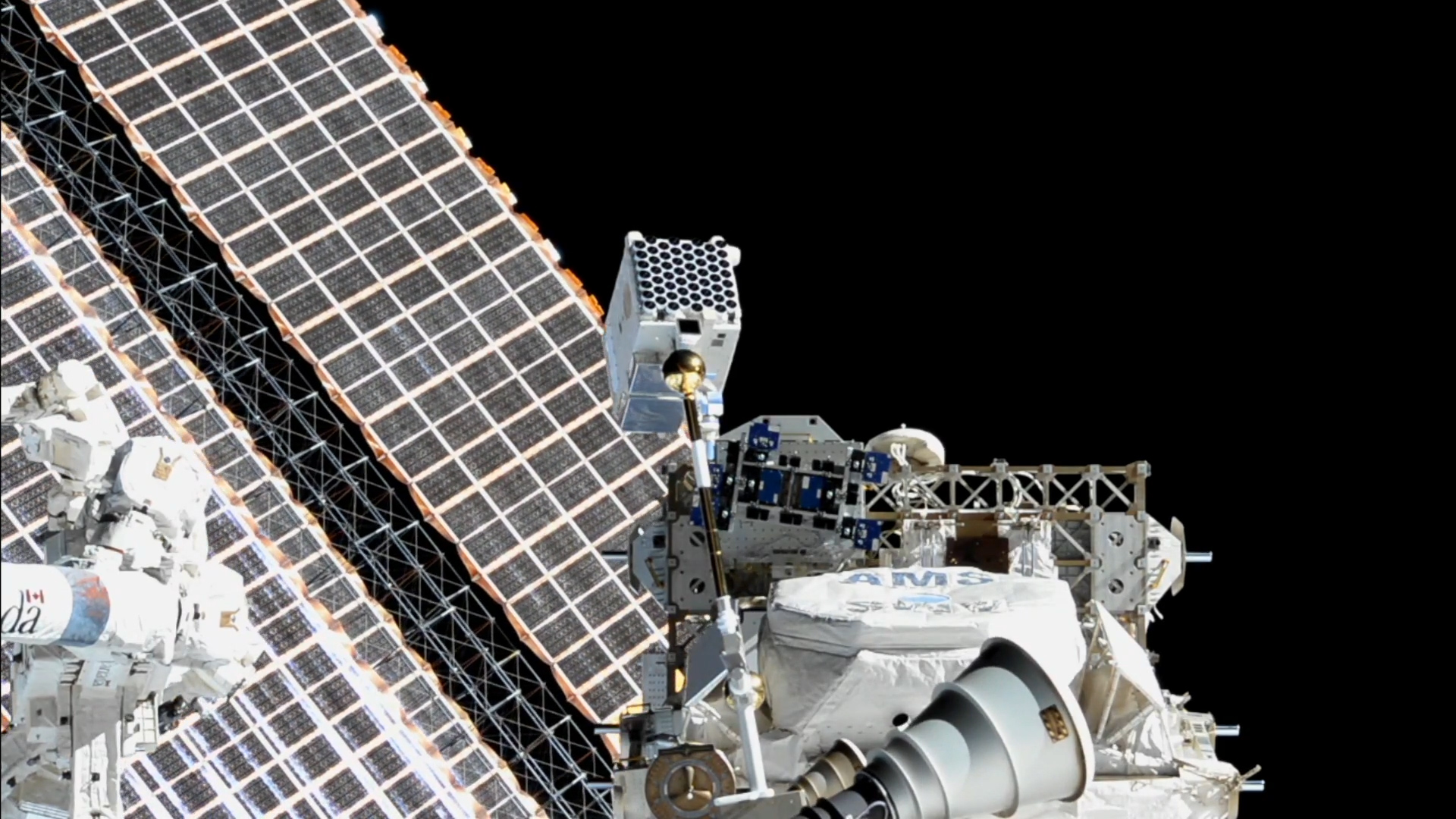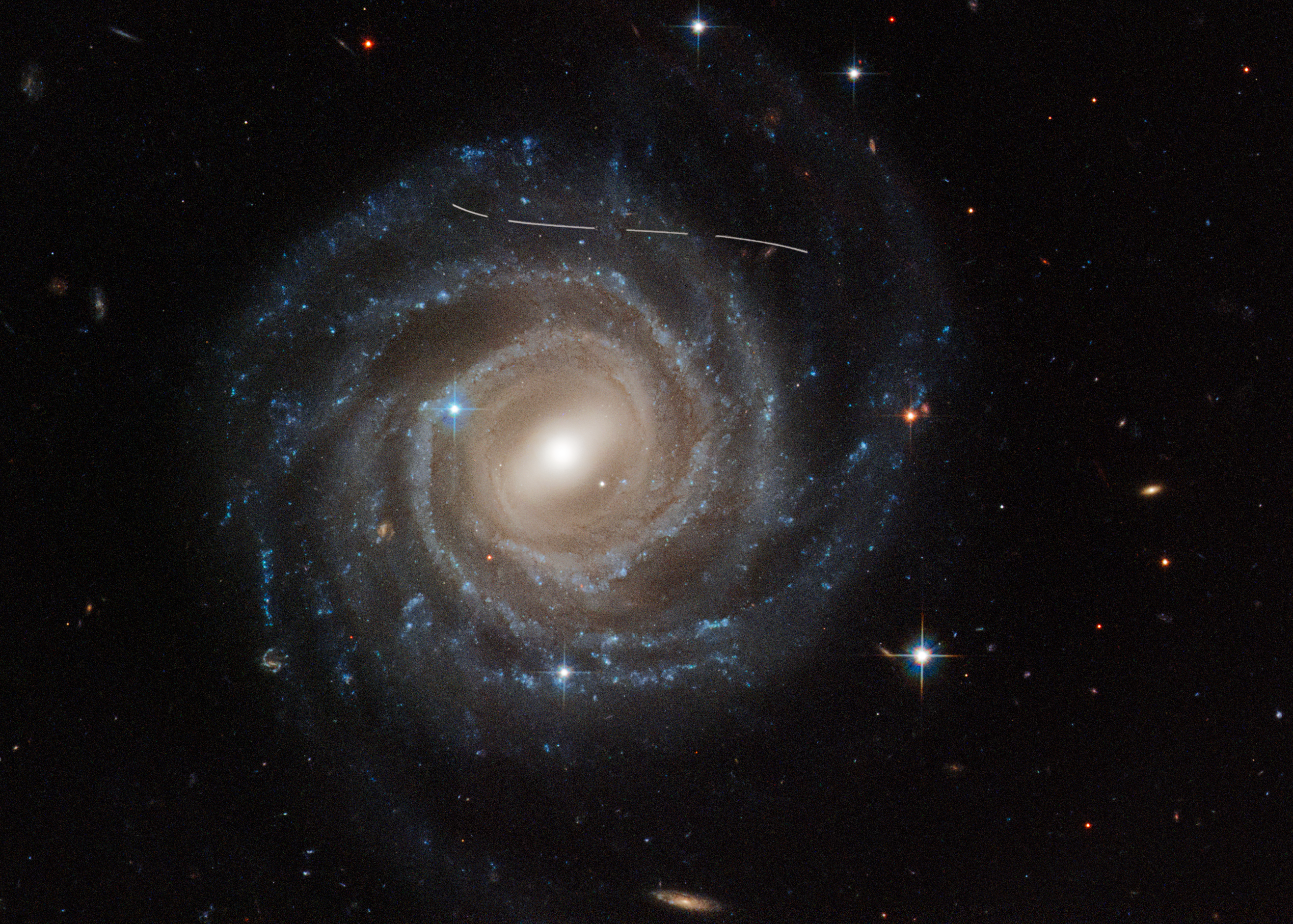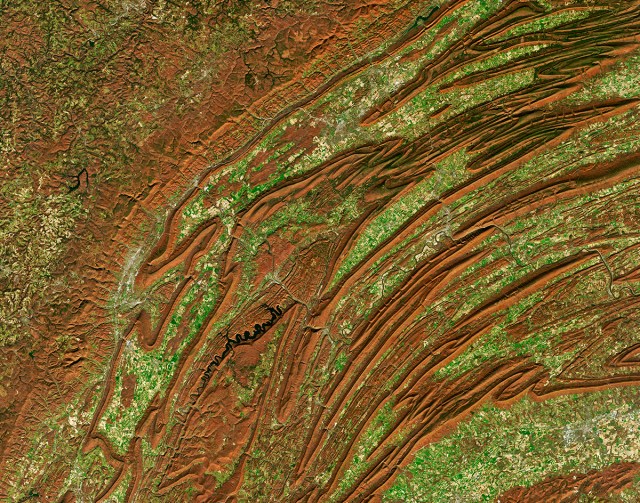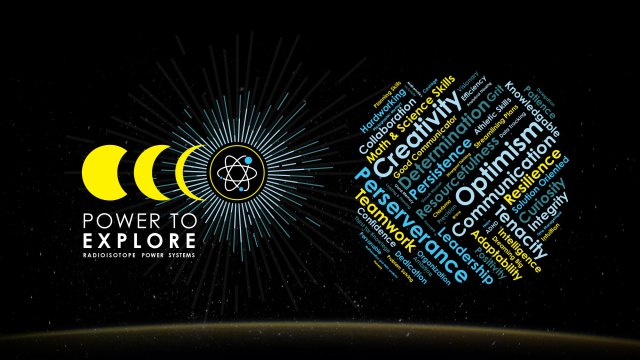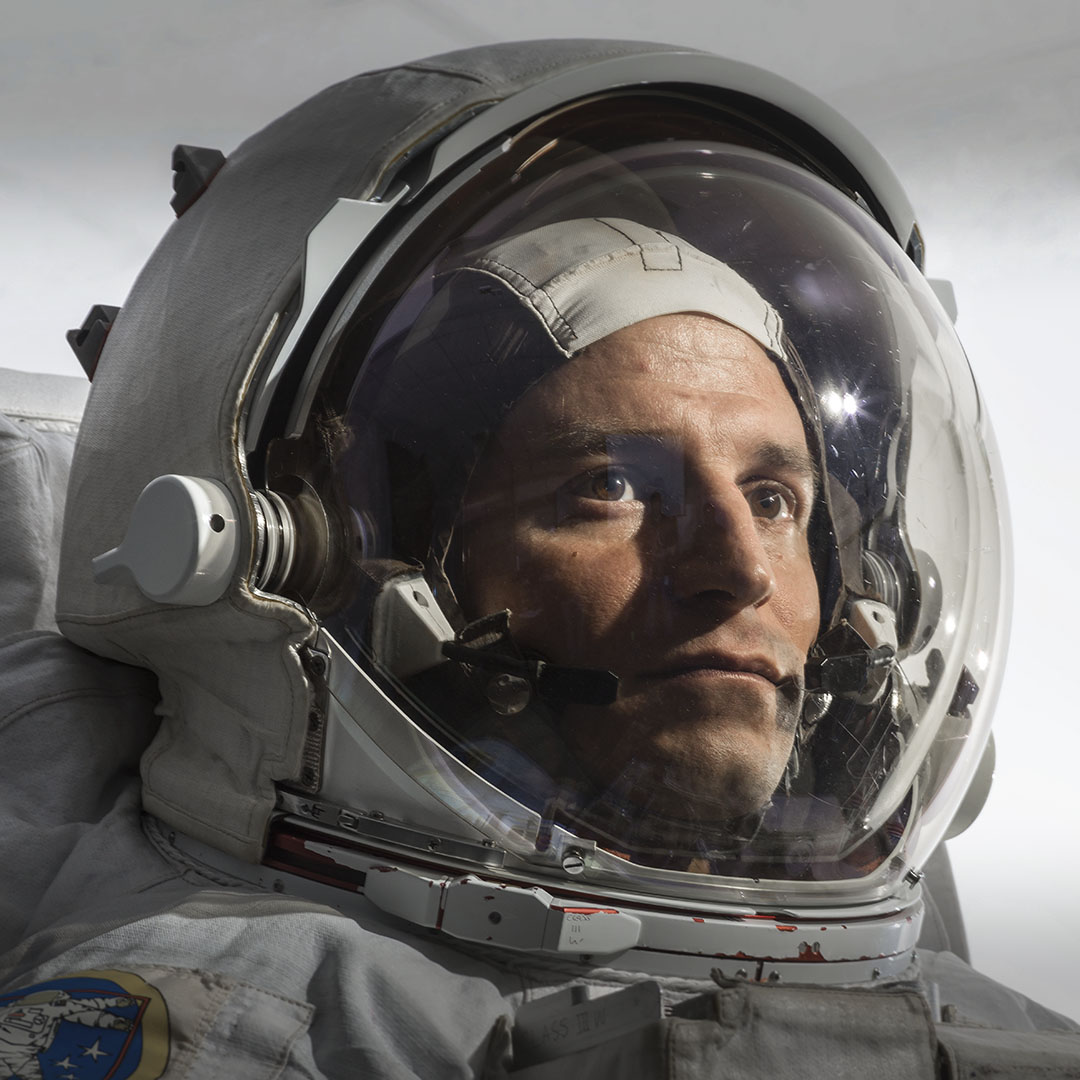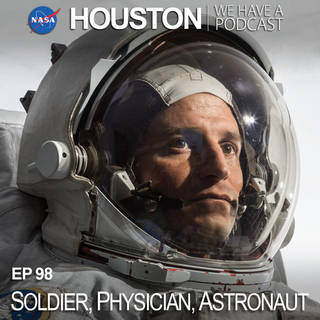
“Houston We Have a Podcast” is the official podcast of the NASA Johnson Space Center, the home of human spaceflight, stationed in Houston, Texas. We bring space right to you! On this podcast, you’ll learn from some of the brightest minds of America’s space agency as they discuss topics in engineering, science, technology and more. You’ll hear firsthand from astronauts what it’s like to launch atop a rocket, live in space and re-enter the Earth’s atmosphere. And you’ll listen in to the more human side of space as our guests tell stories of behind-the-scenes moments never heard before.
NASA Astronaut Andrew Morgan shares his journey just before his first spaceflight. Morgan talks about his education, his time as a flight surgeon in the military, and his experience parachuting out of planes. He and his wife Stacey share how they are preparing their family for Morgan’s nine month extended stay in space. This episode was recorded on May 7th, 2019.
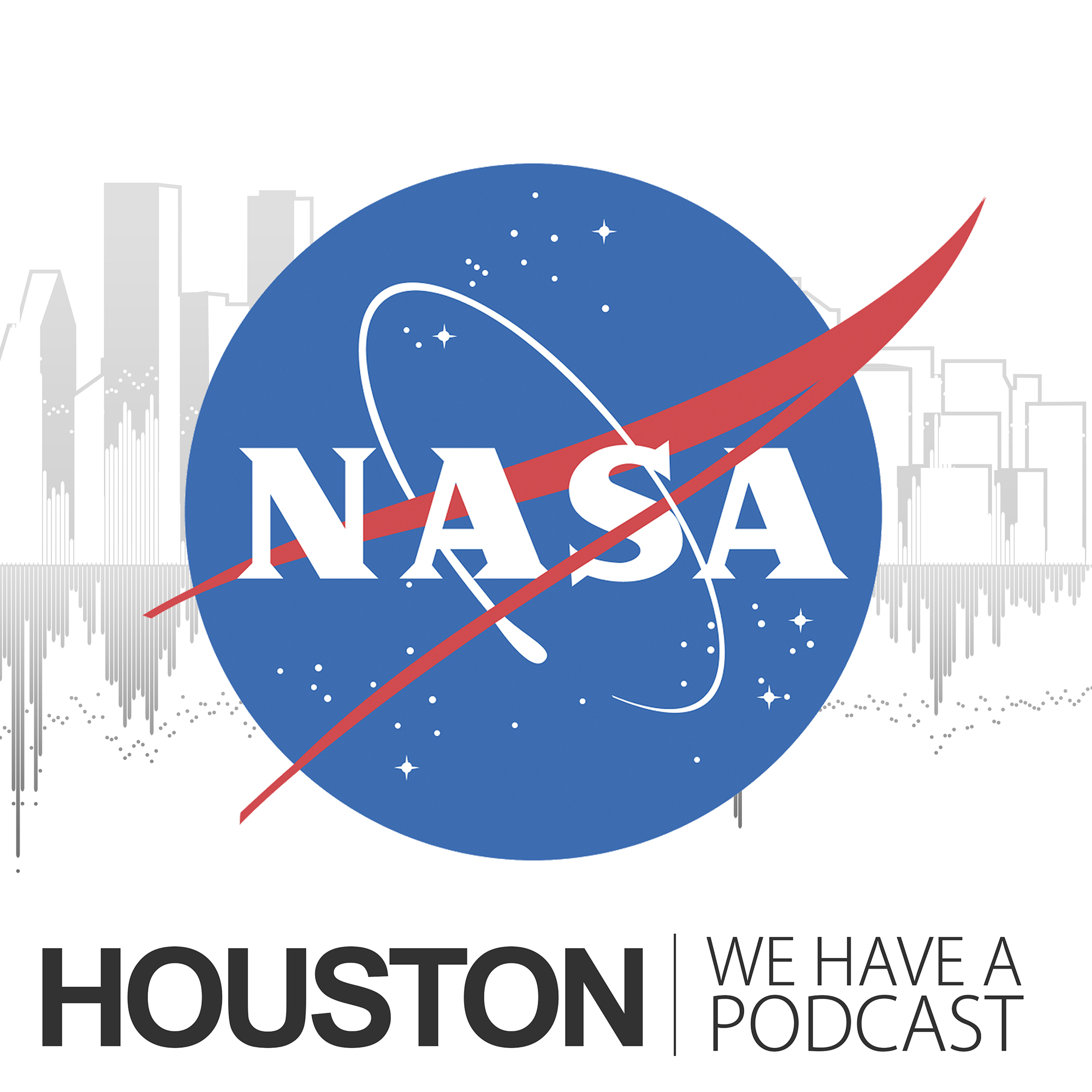
Transcript
Gary Jordan (Host): Houston, we have a podcast. Welcome to the official podcast of the NASA Johnson Space Center, Episode 98, Soldier, Physician, Astronaut. I’m Gary Jordan and I’ll be your host today. If you’re new to the show, we bring in the NASA experts to talk about all the different parts of our agency. Sometimes we get lucky enough to bring in astronauts to talk about their story. So today we’re talking with Andrew Morgan, goes by Drew. He’s a U.S. astronaut who is about to launch to the International Space Station this July 2019 for his very first spaceflight. We discussed his journey from moving around in a military family, his education to become a medical doctor, his time in the military as a flight surgeon, and parachuting out of planes, and his training that has prepared him for his extended stay in space that will take him through three expeditions over just about nine months. That’s a long time to be away from family. So joining us is his wife, Stacey Morgan, to talk about how she and their four children are prepared for Drew’s mission. So here’s the story of NASA astronaut, medical doctor and U.S. Army colonel, Andrew Morgan. Enjoy.
[ Music ]
Host: Drew and Stacey Morgan, thank you so much for coming on the podcast today. I really appreciate your time, especially this close to launch. I really appreciate you guys — having you both here today.
Andrew Morgan: Well, thank you for having us.
Stacey Morgan: Yes, thank you.
Host: All right. So, Drew, I wanted to start with — I wanted to go back and just get your story really. And then, Stacey, how you’re interwoven through this, because really, I mean, we are coming up on a launch here soon. I mean, we’re talking about the 20th anniversary or the — sorry, 50th anniversary of Apollo 11 that you were launching. And you’re going to be up there for a while. So there’s a lot of family elements here. But taking it back all the way to your childhood, you were born in Morgantown, West Virginia. I got to ask, it’s not your town. Right?
Andrew Morgan: No, it’s certainly not. I was born into a military family. My parents are from Western Pennsylvania originally. And at the time I was born, my dad was finishing dental school at West Virginia University. And then he was commissioned in the Air Force. And that began my life of moving around every couple of years. We lived anywhere from — in one location maybe two to four years at a time. Lived in California, lived in New York, lived in Texas, lived overseas in Great Britain, lived in Delaware. So that was a big aspect of who I was, was being a military brat that moved around every couple of years.
Host: Yeah. Did you get kind of used to it after a while? Just, “All right, we’re going to pack up and move again. I guess I’ve got to make new friends.”
Andrew Morgan: It’s all I ever knew as a child was moving every couple of years. And that kind of reset and starting over in a new location became very routine. And I think it made me and both of my brothers very adaptable. And it was something, obviously, that I enjoyed enough that I thought, “I’m going to have a military career myself.” And I wanted the same thing, you know, now that I have my own children, was expecting we’d move every couple of years. So it definitely was something I viewed as very positive.
Host: But you said that Western Pennsylvania is your home base.
Andrew Morgan: Home base — I consider myself — my hometown to be New Castle, Pennsylvania, which is where my parents and my grandparents are from. But I actually never lived there. It was just where I would return to in summers, for vacations or for holidays. So it’s important as a military family to have something to call home when you move around so much. And so it’s still part home, but it’s just never a place that I actually lived for any duration of time.
Host: I can absolutely relate. Western Pennsylvania for me, too, Cranberry Township.
Andrew Morgan: Really?
Host: Is home base.
Andrew Morgan: Yes. Very nice.
Host: Yeah. Not too far away.
Andrew Morgan: Oh, wow.
Host: But, yeah, my dad was a manager and we moved around. Mostly around the Pennsylvania area. So I was born in Eastern Pennsylvania. And then we moved around. I went to New York as well. But we — but I guess, you know, Cranberry Township is sort of home base. When I go there, that’s where my friends are and everything. But, yeah, I absolutely get it. And I get the value of moving around a lot that it really helps — especially with me, and I’m sure for you, adapting to new situations throughout your life.
Andrew Morgan: Certainly, adapting to new situations, understanding different cultures, just different parts of the United States. But the European travel that I was able to do as part of living over there, it just really formulated my mind in a way that was very positive, and something that I thought was valuable enough to want to do the same thing for my kids.
Host: And that’s kind of where this military career. So it seems like pretty early on you kind of knew you were going to go with the soldier route.
Andrew Morgan: I definitely was interested in being in the military from early on. I have always had an interest in space and aviation and the military, or the combination of all three. But I would say that the — certainly, something that I viewed as very achievable for me was to be in the military. And I considered all the branches of the service. As it was, I chose to go to West Point, and was commissioned as an Army officer. But I can’t remember a time that I didn’t want to be in the military.
Host: Now, what about space? Where did that come from? You said there’s always been a time. I’m guessing there was some moments in your life where really this kind of had a background, this idea of space.
Andrew Morgan: Yeah, definitely. So because my dad was an Air Force officer and we were around Air Force bases quite a bit, there was that element of aviation that I was always exposed to. And I, certainly, was intrigued by that. At one point we lived in Texas for about five years between Austin and San Antonio. And this was the height of the space shuttle era. And at that time shuttles were launching fairly regularly. And they would be ferried across the country from California to Florida on the shuttle carrier aircraft. And I can remember both when we lived in Austin and San Antonio seeing it fly over on the back of the 747, and also seeing it on the ground, and just remembering, aware of the launches going on that time, the Challenger tragedy occurred while I was living in Texas as a fourth grader. So those things definitely etched in my mind. And space was very much on my conscience and something that I was very interested in. I also often tell the story about when I was a fourth grader in San Antonio during the celebration of the Texas Sesquicentennial, and we all wrote to famous Texans. And I chose to write to Apollo astronaut Alan Bean. And I got a lithograph back from him signed by him. And I was super excited to receive that. And I gave it to the school as part of the celebration. And I often say that that was kind of the seed that was planted at that time when I got that letter back from NASA with, you know, NASA letterhead. It was very exciting. And a special significance since now I’m going to be flying on the ISS for the 50th anniversary of Apollo 12, Alan Bean’s mission, and, as you know, he just passed in the last year or so, this is — it’s really unique. And I’ll be flying actually an Apollo 12 patch with me, because that was so meaningful to me.
Host: Wow. Yeah, all these images as you’re telling them, I’m picturing in my head. Yes, they’re going to be images that you’re not going to forget. The shuttle on the back and Alan Bean. These are very significant moments. But it was later I think you went to — you went to West Point. And I think you went for environmental engineering. Right?
Andrew Morgan: I did. I was always interested in math and science. And West Point being a really great engineering school, I thought I should probably major in engineering. And I was able to combine a couple things that I liked. I liked physical geography, I liked engineering, I liked math, I liked biological sciences. And those all combined very well in environmental engineering. And so — and that was kind of my thinking at the time drew me to that conclusion. Knowing that I was probably interested in going to medical school, I thought it was an interesting supplement to a medical education to have an engineering degree.
Host: Yeah, I can understand that. It’s this degree that’s broad enough, where you get to explore different elements, and then, you know, you have something subtle in the back of your mind like, “Yeah, I might go that route, but let’s check it all out first, and let me see what I’m really interested in, and then I’ll kind of find my focus.”
Andrew Morgan: Yeah, a unique aspect of the education at West Point is whether you’re interested in engineering or not, you will get a fair amount of it, so you might as well just embrace it and finish the degree in it.
Host: Well, so is West Point — actually, Stacey, this is where — this is where you come in. Right?
Stacey Morgan: That’s right.
Host: Where’d you meet Drew?
Stacey Morgan: We were both cadets together at West Point. I like to think I made his final two years there a little more exciting.
Andrew Morgan: She certainly did.
[Laughter]
Stacey Morgan: But, yeah, that’s how we met.
Host: Okay. I guess you met and then, you know, you stayed together, because after West Point —
Stacey Morgan: That’s right.
Host: I think you went to — Drew you went to Maryland.
Andrew Morgan: I went to Maryland. I had applied to medical school. I got into Uniform Services University, the Health Sciences, in Bethesda, Maryland. And Stacey was finishing her degree at George Washington University in Washington, D.C. So we were nearby each other while she was finishing her degree and I was just beginning medical school.
Host: Okay. Yeah. So you were close. I mean, you were going your own career path, but it was close enough where you can maintain that relationship.
Stacey Morgan: That’s right. So we stuck it out, dating for about three plus years, and then got married after I graduated from undergrad.
Host: All right. Three years of distance.
Stacey Morgan: We tried to keep it close.
Andrew Morgan: I mean, we were near. We were very — it was just a couple minutes away. So it wasn’t too far.
Host: Oh, okay. Yeah, that’s not really — yeah, that’s not really distance.
Stacey Morgan: A few minutes away.
Andrew Morgan: Yeah, yeah.
Host: Yeah. A few minutes. Okay. So you got married I guess was it — I guess while you were still in school in Maryland?
Andrew Morgan: I was still in medical school about halfway through when we got married.
Host: I see.
Andrew Morgan: And then Stacey had finished her degree. And we lived in the Gaithersburg, Maryland for the first two years of our marriage while I was finishing up medical school.
Host: Okay. So medical school, you went for emergency medicine. Now, I know there’s different paths in medicine that you can go. And I’ve talked with — and specifically the one that’s coming to mind is Serena Auñón-Chancellor. She went for I believe internal medicine. So there’s always — there’s a choice I guess when it comes to the type of medical work that you do. Why’d you choose emergency medicine?
Andrew Morgan: You know, I actually started medical school thinking that I wanted to do emergency medicine. And there were a couple aspects of that. One was there’s a strong team component of working in the emergency room. And I always thought that was really neat the way that doctors, nurses and medics worked together to deal with chaos that walks in through the door. I liked being very broad, knowing a little bit about every specialty, kind of being able to deal with anything that walked through the door. That was also really important to me, because I knew that I wanted to do operational medicine, medicine in the field, as a physician of soldiers. And emergency medicine felt like the best preparation for doing that for the career that I wanted to have.
Host: Yeah. You were going — it seems like — I mean, for me, this is — just listening to this, I’m all stressed out with the emergency medicine thing. But even before hand, while you were in West Point, you were actually parachuting with I think it was the Black Knights. Right? So even jumping out of planes. So, Stacey, I mean, how — I guess you enjoy the danger. Right? You were looking for the —
Stacey Morgan: Well, it was certainly exciting —
Host: Yeah.
Stacey Morgan: To have a boyfriend jumping out of helicopters every day. But, yeah, I mean, ever since I met Drew, he’s always been a part of teams. And I think that’s part of who he is. He works well in teams. He seeks out teams, high-performing teams, teams that take risks together. And so, I mean, —
Andrew Morgan: Calculated risks.
Stacey Morgan: Calculated risks. That’s right.
Host: Calculated risks.
Stacey Morgan: Not irresponsible risk. Yeah. So, I mean, when I first met him, he was on that team. And even, like he said, through medical school and as he was — we were kind of figuring out what specialty he was going to choose, it was not a surprise that he would choose emergency medicine, both for that team aspect, but also because since the day I met him, you know, I knew — like, he is a soldier at heart, and he wanted to be back with his soldiers. And so, you know, you kind of have a choice as to whether you’re going to try to stay more in the hospital, or you’re going to be out more in the field. And I knew — I always knew he was going to be out in the field with the soldiers. And so that wasn’t a huge surprise. And that’s kind of been a theme really through his whole life. It’s team, it’s sacrifice, it’s service.
Host: Did you keep up your parachuting skills while you were in the Uniformed Services University?
Andrew Morgan: I would say I took a several year hiatus where I would just occasionally jump, you know, if I was getting together with old teammates. But from the time I left West Point until I finished medical school and residency, I didn’t really start jumping again until I went back to the operational army and was in an airborne unit doing static line jumps, where you jump out and the line pulls the parachute out for you. And then I also developed a relationship with the Army Parachute Team, the Golden Knights, and started freefall jumping again. And then eventually went to the Military Freefall Parachutist course, and continued jumping operationally. And so there was a period of time there I wasn’t doing it regularly. I usually viewed it as an aspect of my job more so than as a hobby that I did on the weekends. The military enabled me to do it for free, so it was hard for me to pay for that on the weekends when I can do it as an aspect of my job.
Host: Right. But you said — Stacey, you said that teams were really important to you, Drew. And it seems like, especially when you talked about the Golden Knights parachuting, this is when you were in North Carolina at the Womack Army Medical Center, if that’s right.
Andrew Morgan: I was. I was — when we moved to Fort Bragg, North Carolina I had a couple of different jobs there. And I was a staff physician at Womack Army Medical Center. And I was then the battalion surgeon of a couple of different types of special operations, Special Forces units where my primary responsibility is to take care of the soldiers and the families in that organization.
Host: And that’s kind of where I was going with the whole teams’ thing is I think while you were, you know, with the Golden Knights you were also a physician. So you had that kind of ability to connect with the folks that you were tending to, if that’s — am I getting that right?
Andrew Morgan: Yeah, absolutely. I mean that was — my medical skillset always — always felt like it could always be a contributing member of any team. They definitely saw value in being able to reach out and touch a physician easily, get a hold of me at any hour. My relationship with the Army Parachute Team, but also my relationship with the unit that I was in at the time, Third Special Forces Group, being that — being available to them, like that was extremely important. And participating in the operational skills, like jumping out of airplanes, diving, flying in helicopters, basic soldier skill types of stuff, to be able to do that well alongside of them gave me a lot of credibility with the soldiers. It felt like that they could confide in me in a different way than they could with a — if their physician was somebody that they couldn’t necessarily relate to. And being alongside them and experiencing those things with them made me approachable, and it made me — it helped me understand them and their mentality better, and integrate in a different way.
Host: And I’m guessing you took those skills with you on the next thing, which was I guess for the next few years, you were kind of all over the place, but there was this area of deployment I think as well. Right?
Andrew Morgan: Absolutely. Of those five years that we were in North Carolina, I spent over a year deployed overseas between Iraq and Afghanistan, and some short trips to the African continent as well. So my family, at this point was — you know, we were having — our family was slowly growing at this time. And so I was deploying, gone frequently and our family was growing on the side. So it was a — it was a very dense time in my career of trying to balance family with the operational requirements of a very busy army.
Host: Oh, very true. And, Stacey, it’s not a walk in the park for you either. It was definitely a busy time.
Stacey Morgan: Yeah, it was very busy. It felt like we would get pregnant, he’d deploy and come back, and a month later we’d have the baby.
Andrew Morgan: Yeah.
Stacey Morgan: So it was like, “Welcome home. We’re about to have another baby.” Yeah. It was — but it was good. I mean, what could have been a very challenging time on paper, you would wonder, “Gosh, how does a family, a spouse get through that many deployments?” Plus, he went to a number of different schools. There were a lot of more kind of high-risk schools. And, of course, that’s more months, you know, cumulative away from the family —
Andrew Morgan: Military schools.
Stacey Morgan: Military schools, yeah. But the key was I was surrounded by other spouses who, you know, understood what — we were all in the same boat together. We all understood service and sacrifice kind of in a more intimate way than maybe the average person. And so that really made all the difference. What could have been a really hard time actually those five years were some of the best of our army life, even though it was challenging in many ways.
Host: Yeah. That idea of a community. You have a support group —
Stacey Morgan: Yeah.
Host: And have made all the difference.
Stacey Morgan: Yeah.
Andrew Morgan: I mean, I would add to that, I would say that we really thrived. And that’s where we developed the skill of being apart, and doing well as a family as a result of that. And not just being apart, but also in very dangerous environments. You know? When Stacey and I met, I was already on the parachute team. She’s known that I’ve been a calculated risk taker [laughter] from the moment she met me. And she knows that’s an element of who I am, of being a part of a team and taking these calculated risks as part of that team. That’s something that’s been a thread throughout my entire career. And she’s always been extremely supportive of that. And that goes all the way back to the beginning. And her understanding of that has helped me become the person that I am.
Host: And I’m sure that it’s going to transition nicely into you becoming an astronaut. At what point did you decide this is something that I want to pursue, I want to — I’m going to just start applying?
Andrew Morgan: Well, I mentioned that I had this early on interest in aviation and space. But I never planned my career around how to become an astronaut, clearly, because the pathway that I followed, it was not one that’s well known for becoming an astronaut. But I knew that — I said I — I always told myself I should apply, I should at least give it a shot. And I didn’t have mentors or anybody that had gone that pathway. So I really wasn’t sure how I would — how to pursue that even. I watched the last space shuttle launch in 2011 with my son, who was then seven years old. And I thought when the space shuttle launched that there would be no more astronauts selected. I didn’t — I really didn’t know. And then in 2000 — just within a couple months of that I think, just a few months later, they announced that they were going to select a class in 2013. And I was at a good point in my career at that point, where I thought maybe this is the time to apply. And I remember telling Stacey about it. And I said, “I’m going to apply and I think –” I mean, you can speak to it. You can be — I told her that there’s no way I’m going to get selected, so just let me apply. What’s the big deal?
Host: Right.
Stacey Morgan: Yeah. Well, like anybody knows, I mean, astronauts when they are selected are usually, you know, obviously, doing extremely well in whatever career field that they have chosen at that point. And usually if you’ve reached that level of success, you are — you’re all in. You know, you have to be all in. And that includes your family. And so we were all in with what we were doing in the Army. We were about to move to Germany as a family. Literally, the movers had been scheduled. You know, everything was packed up. I was already looking for rental homes online, and getting pretty excited about a couple years of a European experience with our kids. And he said, “I want to apply.” And I was like, “Um… really? Okay.” And he said, “Well, don’t worry, we’re still — I’m sure we’re still going to get our European experience, because the likelihood of me being selected is very low. They’ve never selected an Army physician before.” You know, if nothing else, you know, our joke became no matter what, you’ll always be a NASA applicant. So we will cherish the rejection letter forever. You know? The problem was he kept making every gate.
Andrew Morgan: I started making cuts along the way. And then it started to — you know, like Stacey said, I mean, my career was in a good place, I was very satisfied. I often say that if I had not been selected as an astronaut, I would have been very, very fulfilled to continue on the path that I was. I loved my career. I had the dream job I believed. And I still think that it was a dream job. But as I made cuts along the way, it started to become a little more of a reality. And I think Stacey started to think, “Wait a minute here. You know, I thought you said there was no way this was going to happen. This is really changing how I thought the next aspect of our career, our lives together was going to look.”
Stacey Morgan: Yeah, that’s right. I mean, it went from thousands — you know, don’t worry, there’s thousands of people applying. And then it went down to hundreds. And then a hundred. And then a handful, you know —
Andrew Morgan: Still a long shot.
Stacey Morgan: It’s still a long shot. Don’t worry.
Host: Even at the handful point.
Stacey Morgan: Even at the handful point, you know, you knew — we knew it was going to be a small class. We knew the likelihood of it was still very small. Drew had met all the other, you know, candidates down at different interview processes. And he’d come back and tell me about these amazing people who he had met, and they are so accomplished and they’re so well-spoken and —
Andrew Morgan: And there’s no way they’ll select me.
Stacey Morgan: And there’s no way he’s going to be chosen. So don’t worry, we’re still going to Germany.
Host: Yeah.
Stacey Morgan: Don’t let cancel the movers yet. But —
Andrew Morgan: But, nevertheless, in June 2013, I got a phone call from Janet Kavandi, who’s now the center director at Glenn. And she was running their selection board and she called and said, “Would you like to come down and be part of our team?” And I know those words resonate with me very well. I will — you know, I’ll admit that I choked up. You know, I cried. I mean, it was unbelievable. And I remember coming home, I didn’t call Stacey right away, I actually turned my phone off. I wanted to get home and tell her in person. And she was pulling into the garage, you know, after a busy day of running the kids around —
Stacey Morgan: Well, I wasn’t home.
Andrew Morgan: Yeah.
Stacey Morgan: You came home and I wasn’t home.
Andrew Morgan: Oh, yeah, I said —
Stacey Morgan: Surprise, surprise. Right?
Andrew Morgan: Yes.
Stacey Morgan: Like, I’m sitting at home waiting. I know. I was out grocery shopping. Which is what most, you know, moms are doing in the middle of the day.
Andrew Morgan: And she pulled into the garage and I told her — I said, “I have some bad news and some good news. The bad news is that we’re not going to get that European vacation,” because we were just at this point a week out from shipping our car to Germany. “But the good news is I’m going to be an astronaut.” And so —
[Laughter]
Host: How did you react?
Andrew Morgan: I guess that’s good news. Right?
Stacey Morgan: I mean, I was — I think at that point — when we had reached that point, I was starting to mentally prepare myself that I may have to turn off all of the logistics for a European move, and switch it to Texas, that we may need to adjust our mindset a little. So, yeah, when he — he called me when I was at the grocery store and he said, “You know, where are you?” And I said, “I’m at the grocery store. Where else would I be?” And he said, “I need you to come home.” And I thought, “Well, it’s either, I mean, obviously, really good or really bad news.” And when I pulled in and he was waiting in the garage I knew something was up, that he’d gotten the call. And, yeah, I mean, it was a quick turnaround. It was a very quick turnaround from getting the call to needing to actually be down here. And at that point, you know, we had four kids, so, you know, you’ve got to think about when school starts and having a place to live, and turning off everything for Germany. You know, like Drew said, we were literally a week away from putting our car on a barge to send to Germany. And we had to turn all that off, switch it all to Texas.
Andrew Morgan: And a mentality switch, you know, that we’re no longer going to be a military family that’s going to move every couple of years, and that we’re getting — you know, going to see the world with the military moving us around now to we’re going to go live in Houston for, you know, potentially decades, and really grow a deep taproot here. And so that was kind of — it really rattled our sense of who we were and where we were headed.
Host: Yeah, it was not only a logistical challenge, because I’m sure a move to Germany was not easy, it wasn’t just a couple of days, weeks. I mean, this is a lot of planning —
Stacey Morgan: That’s right.
Host: That you just have to chuck —
Stacey Morgan: Right.
Host: And say, “All right, well, let’s start — let’s start and go to Houston instead.” But that — yeah, that mentality of basically switching the definition of how you defined your family thus far, now you’re going to have roots, roots in Texas. I’m sure even at this point now, do you feel like you have stronger roots in Texas being here for as long as you have?
Stacey Morgan: Well, our kids definitely consider themselves Texans.
Andrew Morgan: Texans.
Host: Texans, nice.
Stacey Morgan: Yeah. I mean, I grew up in New England. And so the thought that I would live in Texas for most of my life is just something I’d really never considered until I got down here. But, yeah, I mean — but this — I did not move around a lot as a kid. So this feels familiar. You know, having all your kids graduate from the same school, and have friends that they, you know, meet in kindergarten and graduate with from high school. I’m familiar with that. That was kind of a new thing for Drew to wrap his mind around. There’s pluses and minuses to both lifestyles. And so it was that transition from, you know, finding the positives of this new way of doing life.
Andrew Morgan: And six years is a big portion of a child’s life. And so at this point, only our oldest two maybe have some memory of living in Virginia and living in North Carolina.
Host: Yeah. But otherwise Texans.
Stacey Morgan: They are Texans.
Andrew Morgan: Yes.
Host: They’re going for the Tex-Mex and –yeah.
Stacey Morgan: That’s right.
Andrew Morgan: Absolutely.
Host: So tell me about some of your — some of your first days. You know? Because you were an astronaut candidate for two years. That’s a lot of training. Tell me about when you first got to NASA and hit the ground running.
Andrew Morgan: Yeah. There were several aspects of astronaut candidate training. I think one of the most jarring for a lot of us was we got thrust right into Russian language training, which is quite a challenge. We got started on that pretty quickly. For those of us that — you know, in my class of eight, six of us had military backgrounds, and five of us had some sort of aviation backgrounds as well. And I, along with two of my classmates, Jessica Meir and Christina Koch, because we weren’t rated military aviators, we were sent to Pensacola where we learned kind of the fundamentals of being aircrew through the Navy. And as luck would have it, the two — the three of us spent two months together early on, and kind of built a very strong bond early on. And I’ll be flying on the International Space Station with both of them at one point, which is great.
Host: That’s awesome.
Andrew Morgan: So flying was an important part of our training. Then from those basics that we developed in Pensacola, we came back and learned to be crew members in the T-38, which is our supersonic jet trainer that we use for what we call Space Flight Readiness Training. And it just helps us hone those skills of good crew interaction using checklists, and working in an environment that is actually quite dangerous, and has that element of risk that we are constantly mitigating. We learned systems on the International Space Station. We learned the fundamentals of robotics and operating the robotic arm. And then a big part of what we do also is just bond as a class. And, you know, I continually come back to that team concept, and what we call in the astronaut core expeditionary skills, those skills that build good teams and make you a good teammate. Because living onboard the International Space Station for months at a time, being a good teammate, has been proven time and time again as important as the technical skills. And so we did things like went on geology trips where that involved camping, or we participated in short expeditions, you know, through the National Outdoor Leadership School, NOLS. My class went to Wyoming and did a nine-day trip. And those things stand out in my mind as much as any of the technical training, is getting to know and function in a team. You know, sometimes the chemistry is not — it’s not perfect. And you learn how to work through tough times together. But I can say that my seven other classmates, the eight of us together, we’re like family now. And we’re all assigned to flights right now. And at one point I’ll be on board the ISS with — there will be four from my class alone on board the ISS together. We could never have imagined that that would be the case. And because we forged those bonds so many years ago and have built these family-like relationships, the ISS program is going to benefit from the fact that we — you know, that we know each other so well, and that our families know each other so well.
Stacey Morgan: Yeah. I’d add that in those first two years, we spent a lot of time as families socially together —
Andrew Morgan: Yeah, absolutely.
Stacey Morgan: Which is very important, not just for the spouses, the spouses of the other fellow eight-balls are some of my best friends, but for our kids as well. You know, it’s a good thing when sometimes they forget how unusual it is to have a parent who is an astronaut. They really don’t always fully comprehend how unique that is, because they have so many friends in their own schools, in their neighborhoods, down the street that they play with, you know, almost every day, whose dads and moms do the exact same thing. And it’s no big deal. It’s, “Oh, yeah, your dad’s in Russia this week? Yeah, my mom’s in Japan. And they’re going to be on the space station together.” You know? Like, no big deal. It could be anything. Which is great, because it helps balance out what could be very stressful times. You know, there are times when people want to talk to them, and ask them, you know, “How do you feel about this? And isn’t this crazy that your dad’s going to the space station?” And sometimes they don’t even know how to answer that question, because it’s kind of an adult question, but also it’s they haven’t thought of it as being super unusual, because they have 15 friends —
Andrew Morgan: Yeah, they have peers that —
Stacey Morgan: Whose parents have already gone —
Andrew Morgan: Yeah.
Stacey Morgan: And will be going next year. You know? So it’s not a big deal.
Host: Man, this area just blows my mind. That is a normal thing around here. Just, “Oh, yeah, your dad’s in space? Oh, yeah, mine’s going to go in a couple –”
Stacey Morgan: Yeah, mine’s going up next week.
Host: Yeah.
Stacey Morgan: Yeah, they’ll be together.
Andrew Morgan: We’re also really thankful for those friends, like Stacey said, that the spouses have this relationship and our children have this relationship, and they’re — you know, we’re growing up. We say we’re doing life together. And we support each other. It’s really a unique aspect. It reminds us a lot of what it was like to be in a military unit in many ways. So it’s been a fantastic experience. And just grateful for the ability to lean on each other like that.
Host: And I think that’s going to be especially important for you, Drew, because you’re going to spend a little bit longer in space. Right? I think about nine months.
Andrew Morgan: Yes. My mission’s going to be a little bit longer than the standard ISS expedition. But I won’t be the only. Christina Koch, my classmate, will be on board for even longer than I will be. And we’ll get to overlap together on that for about seven months. And I know that she feels the same way, which is we view this as part of our duty. We’re both very service oriented, and this is what the ISS program needs for the benefit of science, for the benefit of the presence on the International Space Station, that we stay longer. And, you know, while the announcement wasn’t that long ago that we were being extended, the writing had been on the wall for a little while, and we had been prepped for it. And the chief astronaut, Pat Forrester, had been in dialogue with us for many months about it, and making sure that we were comfortable with it. So I’d been able to prepare Stacey. And Christina were able to prepare her husband, Bob, for this possibility. And so it wasn’t a surprise. And they fully embraced it. And just the sense that this is our service to the ISS program, service to the international partnership, makes it very, very exciting to be a part of it.
Host: So, Stacey, do you feel — do you feel ready? And the four kids, too, do you feel —
Stacey Morgan: Oh, I don’t think you can ever feel fully ready.
Host: Yeah.
Stacey Morgan: I mean, it is such a unique experience. I’ve, certainly, never lived with a spouse orbiting above me. But, you know, we’re doing our best to prepare in the best way that we can. And then I think having the attitude of flexibility and adjusting as we go, because I think there will be several aspects that you just can’t prepare for until you get there, because it is different for every — even though I have great relationships with other spouses who have experienced this, and they have passed their wisdom on to me, and, certainly, are supporting me as I prepare, every family situation is different, because your relationship is different, your kids are different, the time is different, different things happen while they are, you know, on board the space station. So it’s hard to know exactly how you will feel, or what will happen while they’re gone. But, yeah, we’re doing our best.
Host: But if anyone’s ready, I think — I mean, I can say with confidence, it seems like you’re ready. You have the — you have the background of being a military family, adapting to new situations. Plus, as you said, this is a strong community group. Even you said just your class alone, but has this strong bond. But the area itself is full of people who are ready to support you. It seems like — it seems like things are sort of going your way. But at the same time, you’re right, it’s not super predictable.
Stacey Morgan: No. And definitely having experienced deployments in the past, I mean, you learn how to ask for help. That is a skill that most of us don’t do well, because it’s hard to be independent and be able to, you know, keep your family moving while also asking for help, and accepting that help when people offer it to you. Learning how to say no, and, you know, simplify things and not feel false obligation to do things that you really just don’t have the margin to do when you are single parenting for an extended period of time. Those are all skills that definitely started to learn when we were in the military. But, you know, our kids are a lot older now. And there’s more of them than there were when we did deployments. And there’s a — you know, nine months Drew will be gone pretty much an entire summer and an entire school year. And that’s a — you know, that’s a long time in the life of an eight-year-old. And even the life of a fifteen-year-old. You know, our son will learn to drive while Drew’s gone. You know, our daughter will finish junior high, and she’ll be prepared to go into high school when he gets back. And there’s a lot of life. And so there’s that challenge of moving life forward, which we have to do whether Drew is with us or not. But also helping him feel connected and a part of what we’re doing. That’s kind of the biggest challenge.
Host: So are you ready, Drew, to be away from the family for that long?
Andrew Morgan: You know, it’s really hard for me actually to think about the huge piece of my children’s life and Stacey’s life that I will miss. But, you know, as I alluded to earlier, when I was 18 years old I made the decision to serve my country. And then I made the decision along the way to become an astronaut. And I view this as a continuation of that service. So I’m not just serving my country now, I’m serving this thing bigger than myself. And that is what is going to drive me, and keep me going. Because if I focus too much on what I’m going to be missing out in their lives, it really — it’s just — sometimes it’s too hard to bear. So really as a family, we have to focus on the service aspect. And Stacey does a good job of rationalizing that to our children. She’s always very positive in the way that she speaks about it, and the importance of this service, just the way she did when I would — when I was gone in Iraq and Afghanistan. The children were younger then. They couldn’t quite understand that. But now it absolutely resonates with them. And then knowing that we’re going to have really good connectivity, you know, we’ll be able to talk from the phone, we’ll be able to videoconference, I think, you know, Stacey and I are thinking about projects and things that we can work on together. A couple of weeks ago I got together with Scott Kelly and just asked of him about the — you know, what were some of his lessons learned from being away for as long as he was, and what would he recommend to me. And one of the things he mentioned was trying to have a few projects that you’re working on with your spouse. And so, you know, we like to do home improvement projects. And I know it sounds crazy to do a home improvement project from space, but, you know, Stacey is — you know, she enjoys it, too. And one of the things that we like to do is kind of plan it and talk about it, and kind of go back and forth. And, I mean, we’ve talked about a couple things that we might even try. Maybe we’re crazy if we’re trying to do home improvement projects from —
Stacey Morgan: We’ll find out.
Andrew Morgan: From space. But we also talked about doing things like maybe running a half marathon together, where I run it on the treadmill or something, and she does the same one, and we listen to the same —
Stacey Morgan: Yeah, listen to the same music at the same time or something.
Andrew Morgan: Same music, same playlist. So we kind of know where we’re — you know, where we are. We’ll start it simultaneous. You know, we’re just trying to think of little things like that that we can — that we can stay connected, little projects that we know that we’re both working on, and help drive conversation, prevent it from becoming too routine.
Host: Yeah, yeah. I like the idea of doing these nice ways to connect. But then also setting goals for the future. And I think it’ll make the time fly. But I’m sure — you know, that’s a long time to be away from family and on the station. But you’re going to be doing a lot. You have a very important job, as you said. A service to the space community, to science. There’s a lot that you can do. What can we look forward to you doing over these nine months?
Andrew Morgan: Well, of course, the most important thing that we’ll be doing on board the ISS is running science payloads. And before — when I was a candidate, and even prior to me being assigned, the concept of science onboard the ISS was kind of — we didn’t get a lot of training in specific payloads, because they’re constantly changing. And so the idea of conducting an experiment in space was strictly conceptual. But now that I’m a year and a half into my training, and I’ve been trained on specific payloads and specific projects that I’ll be participating in, now I’ve got a lot of buy-in in seeing some of those — you know, I’ll be one of the last subjects for fluid shifts. And that is a really interesting study to me. It involves a lot of ultrasound, which was an interest of mine in my medical career as well. And so I’ll be participating in that, and that will be quite an investment of my time while I’m on board. We also have quite a few spacewalks planned. And I’m looking forward to being able to do these spacewalks potentially with my classmates or with my crewmate Luca Parmitano. It’ll be — it’s going to be really — it’s going to be an exciting time. And then then there’s also the possibility that some of the first U.S. crew vehicles could visit while we’re there, which will be — that will be, you know, historic. And to see people come up, you know, that we know well. It’s like having, you know, people — and we’re not sure exactly when they’ll come. And when they do, it’ll be really exciting to see these familiar faces come on board the ISS with us.
Host: Yeah, yeah. Definitely a busy time, an important time. You’re going to be doing a lot of different things. You know, speaking of science investigations, particularly because of your background as a physician, is there anything you’re particularly looking forward to or interested in? Just even curious about from your medical training about what’s going to happen to your body in space?
Andrew Morgan: So I didn’t have an extensive background in space medicine prior to being selected. So a lot that I’ve learned about space medicine has been here as an astronaut. And there’s no experience quite like personal anecdotal experience to talk about things like how you adapt to space, and how you do just basic functions. And so I’m very interested in doing that. From a professional perspective, that I’ll be able to speak about it much more intelligently now after I’ve gone through it. And not just gone through it, but gone through it for a long period of time, and talk about the aspects of the body changing.
Stacey Morgan: And then changing back.
Andrew Morgan: Yep, and then changing back after you come home.
Host: Then changing back. Stacey, do you have — do you have plans for how you’re going to carry through these nine months? I mean, besides the connection with Drew, and, of course, the home projects?
Stacey Morgan: Oh, yes. Well, I mean, personally, I like to have projects to do. And I always like to try to find the positive. I mean, it’s never fun when your — you know, when your best friend is gone for a long period of time. So you have to focus on the positives. Like I’m sure I will binge watch tons of shows that Drew doesn’t want to watch. And I will make whatever I want for dinner without asking any other adult what they’re having. You know, there are tiny little things you can do that just help the time feel a little less painful. But, yeah, it’ll be the creative connection things that we’ll try to do that will make it, you know, worthwhile. Our kids are terrible phone talkers. You know, none of them — kids don’t talk on the phone anymore. They text each other, they FaceTime each other. But talking on the phone would be the primary way that we will communicate with Drew. And so a big task is going to be training my kids to talk on the phone, which I think is something that any parent can, you know, understand. Like, kids are just — they’re just terrible. So that’s going to be a big skill we have to work on.
Host: Yeah.
Andrew Morgan: We’re going to ask them to journal a little bit, to kind of think about the things they want to update me on, so that we do, you know, make sure that they —
Stacey Morgan: That’s right.
Andrew Morgan: You know, that they all have their opportunity to speak to me one-on-one, and talk about the things that they would otherwise forget if they hadn’t written them down in their journal.
Host: Well, okay, so there’s — it sounds like you have a lot of plans to stay connected, which is very — going to be very important over these next nine months. In terms of being in space, any tricks you’ve gotten from some of your colleagues, any tips on what to do? I mean, even you said Scott Kelly especially for the length of time. But just adapting to space or anything that really sticks in your mind?
Andrew Morgan: Yeah. So I’ve been in communication with Nick Hague, Anne McClain and Christina Koch, who are on board right now. And as I mentioned, they’re my classmates. And so it makes it very easy to send them emails and talk on the phone. You know, we’ve talked multiple times, and email exchanges almost daily as they’re preparing for our arrival. But hearing it from their perspective is so much more meaningful than talking to a senior astronaut who’s done it multiple times. You know, like Scott Kelly’s flown and been in space for, you know, 500 some odd days. And so hearing it from him is very different than hearing it from my classmates, who are just experiencing the first couple of weeks. And so that has a different value for me. The other thing that really helps is that when they communicate to me, they reassure me the training is excellent. You have, you know, everything you need to know. We just want you to get here. We have everything ready for you to go. We’ll have everything set up. We’ll teach you to do everything that can’t be taught on the ground. Don’t worry about a thing. And getting those types of messages and phone calls from them is — that’s the value of having a classmate on board the ISS, to know that I’m going to be welcomed and that I’m going to see familiar faces that I love, and that I know that they’re going to take great care of me and teach me what I need to know. It just makes it comforting for me, makes it comforting for my family to know that my transition will be smooth.
Host: Yeah. See, your connection with teams and your desire to be part of a team I guess extends even off the planet, on the planet, between off and on the planet. You know, you’re going to be connecting with your family, connecting with your crew base, having these strong bonds. It sounds crucial to get through these nine months. It’s going to be — it’s going to be very interesting. Drew and Stacey, thank you so much for coming on the podcast, and telling your story. This was absolutely fascinating. And, Drew, Godspeed on your mission. I really am looking forward to seeing your mission over these next couple of months.
Stacey Morgan: If there’s just one thing I could say —
Host: Oh, please.
Stacey Morgan: Because I don’t often have the opportunity to speak to this audience. But I just wanted to personally thank all of the NASA employees. I know there are thousands of employees and contractors who show up every day, and they do their job with a level of dedication and diligence and precision that most of us cannot even comprehend. And those all add up to mission success. But for me personally, for our family, mission success is really — it’s so much more than science and exploration. For us, ultimate mission success is the safe return home of my husband, my best friend, the father of my four children. And I just want to thank sincerely all those NASA employees for what they do. On behalf of my family, on behalf of our extended family, and really on behalf of all of the astronaut families who have launched in the past and will launch in the future, you know, you hold our heart in your hands every day that you do what you need to do. And we value you so much. So in all sincerity, thank you so much on behalf of all of the astronaut families.
Host: That’s wonderful. It takes a village.
Andrew Morgan: Well, and thanks, Stacey, for saying that, because I don’t think I could add anything else to that, because that expressed all the gratitude that I could possibly muster. And thanks for having us both here to talk about the unique aspects of a mission coming up. And I appreciate — just really appreciate the time.
Host: I appreciate your time. Thanks. Godspeed.
[ Music ]
Host: Hey, thanks for sticking around. So today we got to talk to Colonel Andrew Morgan and his wife Stacey Morgan just right before his launch coming up this July. So if you want to watch it, go to nasa.gov/NTV, and you can tune in on the 50th anniversary of the Apollo 11 moon landing. That’s July 20th, 2019. He’s going to be launching with his crewmates, Luca Parmitano and Alexander Skvortsov. He’s going to be launching to the International Space Station for nine months. And while he’s there, he’s going to be with a few of his classmates, as he described during today’s podcast, that he graduated with, or at least were selected with, in the class of 2013. We’ve interviewed a couple of them before. If you want to check out Episode 65 to listen to Nick Hague’s story, and Episode 82 to listen to Christina Koch. Both will be on the same time as Colonel Morgan. Now, as I said, this is the 50th anniversary of the Apollo 11 moon landing that Andrew Morgan is launching to the space station on July 20th. We’ve done a couple episodes here on the podcast dealing with the Apollo 11 50th anniversary, so for all things Apollo, we have a collection for you. It’s at nasa.gov/Johnson/HWHAP/Apollo50th. You can also go to nasa.gov/podcasts for all the other podcasts that we have through the NASA Johnson Space Center. Drew Morgan is available on social media if you want to follow along on his nine-month journey in space on Twitter, Facebook and Instagram. He’s all there @AstroDrewMorgan. Otherwise, for all things space station, nasa.gov/ISS. Or on social media, Facebook, Twitter and Instagram. Use the #askNASA on your favorite platform to submit an idea for the show. Make sure to mention it’s for Houston, we have a podcast. This episode was recorded on May 7th, 2019. Thanks to Alex Perryman, John Stoll, Pat Ryan, Norah Moran, John Streeter, Brandi Dean and Megan Sumner. Thanks again to Colonel Andrew Morgan and his wife, Stacey Morgan, for coming on the show. Godspeed on your trip, Drew. We’ll be back next week.





